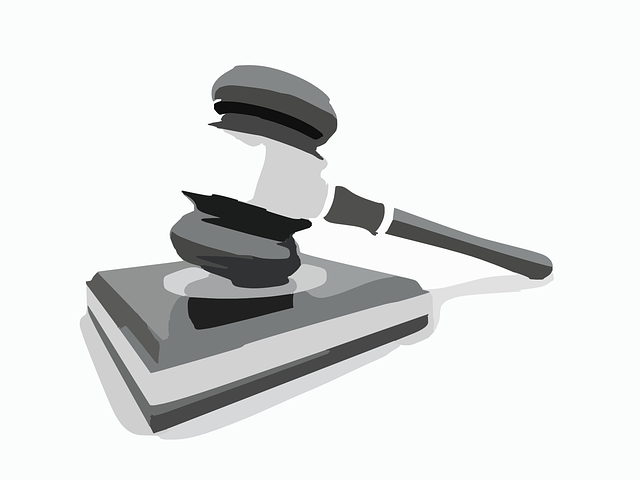Consumer Fraud Class Action Lawsuits empower investors to combat deceptive business practices. The process begins with a thorough investigation, followed by legal battles through pretrial phase, and potential jury trials. Key players include plaintiffs, lead plaintiffs appointed by the court, defendants, and their attorneys. Outcomes range from substantial monetary compensation for victims to deterring future misconduct. These lawsuits not only provide redress but also foster transparency, spark public awareness, and drive long-term behavioral changes in corporations.
Securities Class Actions: Uncovering Justice for Investors
In today’s complex financial landscape, consumer fraud has evolved into a significant concern. A Consumer Fraud Class Action Lawsuit Process serves as a powerful tool to hold wrongdoers accountable and protect investors. This article delves into the intricate world of securities class actions, focusing on understanding consumer fraud cases, the step-by-step process involved, and highlighting key players in these legal battles. We also explore success stories, demonstrating the profound impact these actions have on holding companies and individuals responsible for deceptive practices.
- Understanding Consumer Fraud Class Actions
- The Process of Filing a Securities Class Action Lawsuit
- Key Players and Roles in a Securities Class Action
- Success Stories and Impact of Consumer Fraud Class Actions
Understanding Consumer Fraud Class Actions

Consumer Fraud Class Actions, a subset of securities class actions, are designed to protect investors from deceptive practices and false representations made by companies or individuals. When consumers collectively suffer losses due to consumer fraud, they can band together in a Consumer Fraud Class Action Lawsuit Process. This process involves filing a lawsuit against the respective business that engaged in fraudulent activities, seeking compensation for their losses.
These lawsuits are crucial for holding wrongdoers accountable and ensuring businesses operate transparently. Across the country, numerous consumers have benefited from these class actions, recovering significant sums of money that would have been difficult to obtain individually. The Consumer Fraud Class Action Lawsuit Process involves comprehensive investigations, legal arguments, and ultimately a resolution through settlement or court judgment, providing justice for those affected by fraudulent practices in their respective businesses.
The Process of Filing a Securities Class Action Lawsuit

The process of filing a Securities Class Action Lawsuit involves several crucial steps. It begins with thorough investigation and gathering evidence to substantiate claims of consumer fraud. Legal teams meticulously examine company disclosures, financial records, and communications to identify potential violations of securities laws. This stage is paramount as it sets the foundation for the case and can significantly impact its outcome.
Once sufficient evidence is compiled, a complaint is drafted and filed with the appropriate court. The document outlines the plaintiff’s claims, seeks redress for damages suffered by investors, and invites other similarly situated individuals to join the lawsuit. From there, the case navigates through pretrial proceedings, including motions, discovery, and potential settlement negotiations. Ultimately, the matter may proceed to jury trials where a winning challenging defense verdict could result in substantial monetary compensation for affected investors, helping to combat white collar and economic crimes.
Key Players and Roles in a Securities Class Action

In a consumer fraud class action lawsuit process, several key players and roles come into play. The plaintiffs are individuals or groups who have suffered losses due to alleged securities fraud or misconduct. They initiate the process by filing a complaint against the defendant(s), which can include corporations, executives, or other entities involved in the fraudulent activity. The court then appoints a lead plaintiff, often chosen for their representation of the broader class’s interests. This lead plaintiff guides the collective action and serves as a representative for all those affected.
The defense team, comprising white-collar defense attorneys, is responsible for challenging the allegations made by the plaintiffs. They argue on behalf of their clients, presenting legal arguments and evidence to counter the claims. In contrast, general criminal defense lawyers may be involved if criminal charges are brought, focusing on protecting the rights and interests of their clients in such proceedings. The process involves extensive litigation, negotiations, and, ultimately, a trial or settlement, which aims to provide redress for the harmed consumers.
Success Stories and Impact of Consumer Fraud Class Actions

Consumer Fraud Class Action Lawsuits have proven to be a powerful tool for justice and financial redress when individuals or groups are wronged by businesses engaging in deceptive practices. Success stories abound, with notable cases securing substantial settlements for affected consumers. These actions not only compensate victims but also serve as a deterrent, sending a clear message to companies that such misconduct will not be tolerated.
The impact of these lawsuits extends beyond financial compensation. They spark public awareness, shed light on systemic issues, and encourage businesses to adopt more transparent practices. Through the Consumer Fraud Class Action Lawsuit Process, wronged consumers can band together, share their experiences, and leverage collective power to demand accountability from respective businesses. This collective action often results in changes in corporate behavior, enhancing consumer protection and ensuring fair business practices in the long run.
Consumer Fraud Class Action Lawsuits serve as a powerful tool for holding companies accountable and protecting investors. By understanding the intricacies of the process, from identifying harm and gathering evidence to filing and resolving claims, consumers can fight back against deceptive practices. The success stories highlighted in this article underscore the significant impact these actions have on ensuring corporate responsibility and securing justice for affected individuals. Navigating the Consumer Fraud Class Action Lawsuit Process empowers investors with a collective voice, fostering transparency and enhancing market integrity.






